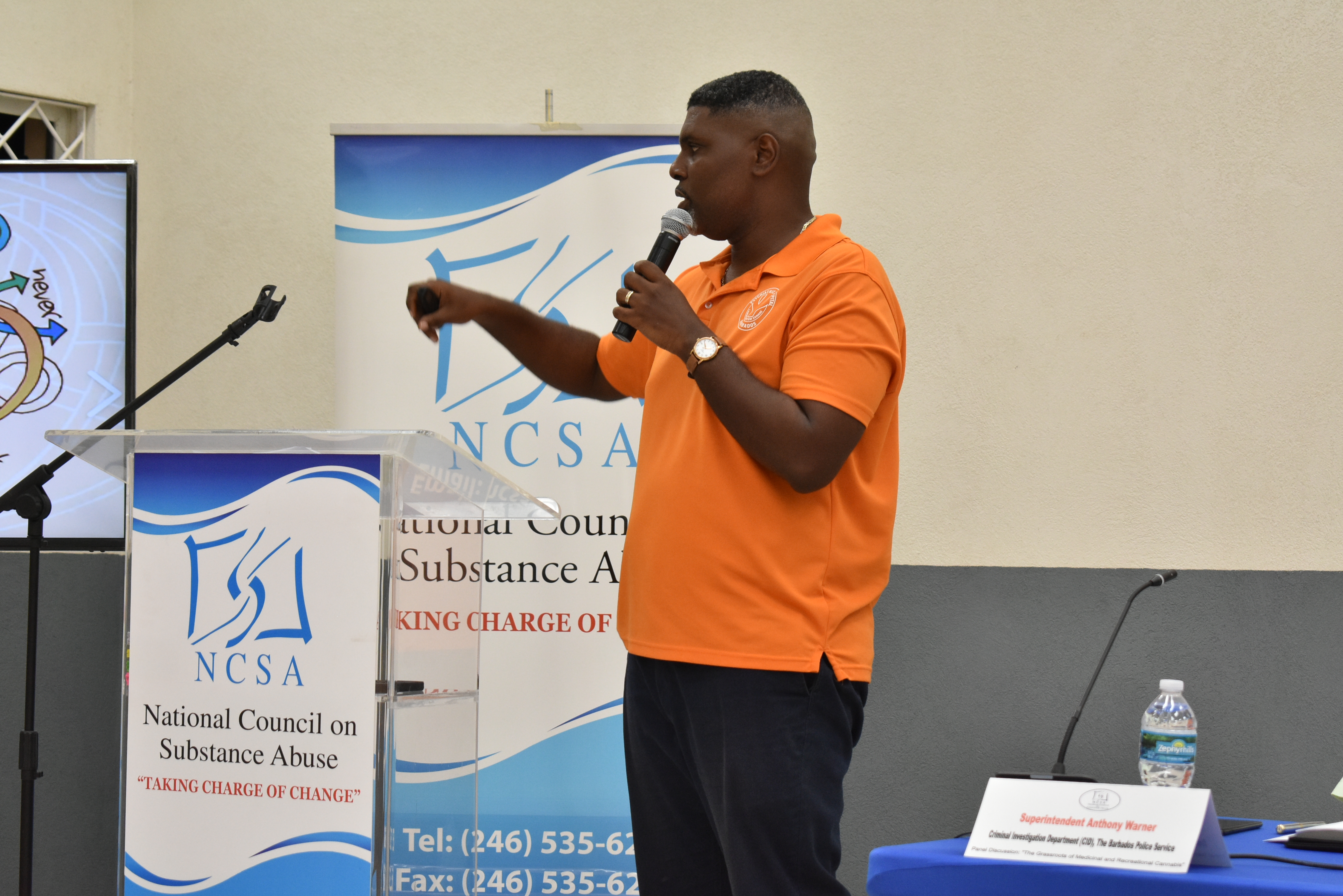Mr. Joel Barrow, Nursing Officer at the Psychiatric Hospital, is urging Barbadians to be fully aware of the potential physiological and psychological impacts of using cannabis. Speaking at a recently held panel discussion titled “The Grassroots of Medicinal and Recreational Cannabis,” hosted by the National Council on Substance Abuse (NCSA), Barrow emphasized the serious long-term consequences of cannabis use.
“Marijuana, also known as cannabis, weed, herb, dank, exo or exotic, gas, and marijuana, is a psychoactive drug derived from the cannabis plant. It interacts with the brain through its two main compounds: THC (tetrahydrocannabinol) and CBD (cannabidiol),” explained Barrow. “THC is the psychoactive compound responsible for the ‘high’ that users experience, whereas CBD is non-psychoactive and used for its medicinal and therapeutic benefits.”
He detailed the various methods of cannabis consumption, noting that inhalation is the most common. “People smoke marijuana using joints, bongs, hand pipes, blunts, vapes, or pens,” he said, providing a visual example of someone rolling a marijuana joint. “Cannabis can also be ingested orally through tinctures, oils, chewing gum, edibles, pills, capsules, beverages, and cannabis-infused butter,” he said.
Barrow elaborated on the physiological and psychological effects of cannabis on the body. Immediate effects include bloodshot eyes due to vasodilation, dry mouth from reduced saliva production, and increased appetite, commonly known as the “munchies.” He illustrated these effects with relatable visuals and examples.
Highlighting more serious concerns, Barrow discussed the cardiovascular impact of cannabis, such as tachycardia (increased heart rate), fluctuating blood pressure, and euphoria. “While euphoria might sound appealing, it can also lead to mood swings, hallucinations, and paranoia,” he warned, using visual examples to emphasize these mood alterations.
Barrow also addressed the cognitive effects of cannabis, noting that it can lead to confusion, anxiety, restlessness, and a distorted sense of time. “These cognitive impairments can result in poor decision-making and increasing the risk of accidents, particularly when driving,” he explained.
Furthermore, Barrow highlighted the potential long-term mental health implications of cannabis use. “Cannabis use is associated with an increased risk of psychosis, schizophrenia, depression, anxiety, and substance use disorders,” he stated, emphasizing the need for public awareness.
Addressing reproductive health concerns, Barrow mentioned that cannabis negatively impacts sperm count, and disrupts hormonal balances in women, affecting fertility. He used vivid imagery to underscore the long-term effects of cannabis on physical health, including lung infections, gum disease, and a decrease in intelligence quotient (IQ).
Mr. Joel Barrow’s presentation at the NCSA panel provided a comprehensive overview of the multifaceted effects of cannabis on the mind and body. His insights emphasized the need for public education and awareness about both the potential therapeutic benefits and the significant risks associated with cannabis use. (PR)

